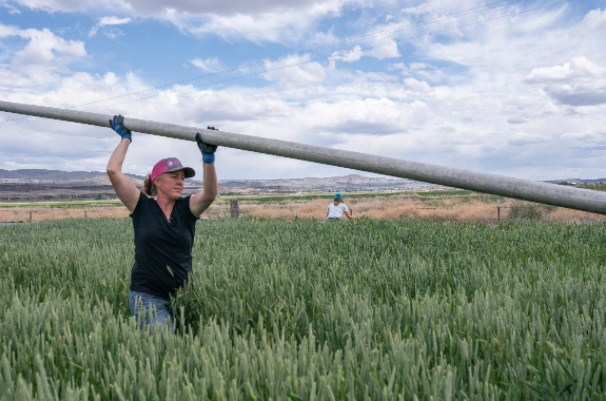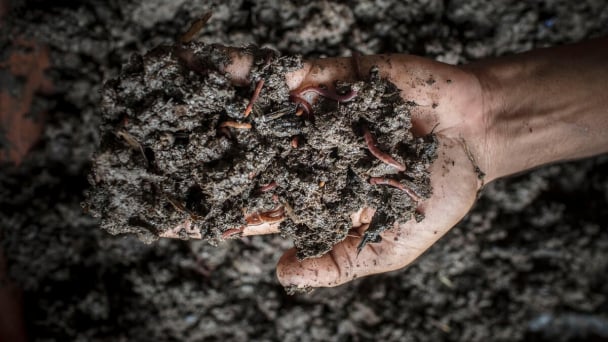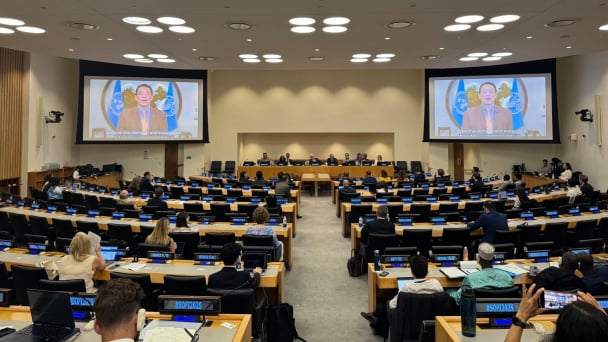July 31, 2025 | 21:33 GMT +7
July 31, 2025 | 21:33 GMT +7
Hotline: 0913.378.918
July 31, 2025 | 21:33 GMT +7
Hotline: 0913.378.918

A farmer moves an irrigation pipe through a field of triticale in California. Photo: AP
The U.S. Department of Agriculture is moving to implement a lending program designed to help farm property heirs resolve ownership and succession issues and hold onto their land.
The department announced Thursday that the Heirs’ Property Relending Program will provide $67 million for loans to resolve property issues that have long kept some producers and landowners from being able to access USDA programs and services. The program’s provisions were included in the 2018 Farm Bill, but it wasn’t implemented during the Trump administration.
The move is a part of the department’s larger push to address long-standing inequities in agriculture, and it helps to fulfill President Joe Biden’s campaign promise of protecting heirs’ property to advance economic equality for farmers of color.
“We can only do things Congress authorizes us to do, and the swiftness through which we implement them can change depending on the administration,” a USDA spokesperson told POLITICO. “The Trump administration probably could have implemented this but didn’t.”
The quick tie to equity: Black farm families in the U.S. have often lost land after handing it down from generation to generation because they do not documentation and access to resources to prove their ownership.
The practice was particularly common during the Reconstruction era, when the lack of access to the legal system resulted in what USDA has previously called “the leading cause of Black involuntary land loss.”
Heirs’ property makes up more than a third of Black-owned land in the South, according to ProPublica. Those landowners “are vulnerable to laws and loopholes that allow speculators and developers to acquire their property.”
The rising frequency and severity of natural disasters also poses a threat to heirs’ farms and other rural property. The Federal Emergency Management Agency more commonly denies disaster aid requests because of title issues in the South in counties that are majority Black, according to a Washington Post analysis.
“While those affected are in all geographic and cultural areas, many Black farmers and other groups who have experienced historic discrimination have inherited heirs’ property,” Agriculture Secretary Tom Vilsack said in a statement. “USDA is committed to revising policies to be more equitable, and examining barriers faced by heirs’ property owners is part of that effort. This helps ensure that we protect the legacy of these family farms for generations to come.”
What’s in the details: The program will provide funding through intermediate lenders for landowners to legally resolve ownership and succession issues.
Heirs can use the loans to resolve title issues by financing the purchase or consolidation of property interests and financing costs associated with succession plans, the USDA said. They cannot use the money for things such as land improvement or development or acquisition or repair of buildings.
Once USDA’s Farm Service Agency selects the recipients, heirs can apply directly through the lenders for loans and assistance.
Lenders with 10 years or more of experience with socially disadvantaged farmers, expertise in similar agricultural and commercial loans or with heirs’ applications already in process, will receive preference, USDA said. If applications exceed the amount of available funds, those received first will be the final evaluation criteria.
(USDA)

(VAN) FAO-led publication outlines structure and highlights agenda including new harmonized indicators and capacity building accessible to all.

(VAN) Energy group experts left after draft guidance on global warming plans ‘did not reflect the industry view’.

(VAN) Special Event in New York explores the causes, consequences and solutions to the 2021-2023 food price inflation.

(VAN) Ahead of Cop30, the Guardian will profile each of the top 10 emitters and their plans – good or bad – to tackle emissions.

(VAN) Scientists have detected pesticides in rivers, lakes and oceans worldwide. So what are these pesticides doing to the fish?

(VAN) Farmers’ organisations from across the European Union feel that the EU is undermining farmers throughout the Union and call for reason.

(VAN) Director-General urges bigger and deeper thinking to address youth employment challenge.